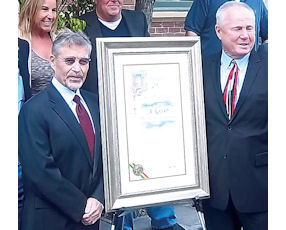Why Russia? That’s the big question after DreamWorks Animation SKG Inc. announced this month it’s getting into the theme park business with attractions in three Russian cities. The Glendale feature animation studio is partnering with Regions Group of Cos., a developer of a chain retail and entertainment centers throughout Russia. DreamWorks Animation is licensing its characters and stories for Regions to turn into immersive environments and attractions. And the answer? Look at the box office numbers that DreamWorks Animation film’s do in the country. Six of the top 10 animated films of all time in Russia are from the studio, including those in the popular “Shrek,” “Madagascar,” and “Kung Fu Panda” series. “If you saw ‘Madagascar 3: Europe’s Most Wanted,’ the tiger character has a Russian accent,” said David Miller, an analyst who follows the studio from the Los Angeles office of equity research firm B. Riley Caris. “That was not done by accident. That was purposely planned.” The Russian projects come at a time when the studio is developing theme park attractions based on its characters and film plots. Last July, it announced it had struck a deal to contribute to an entertainment and retail mall in New Jersey. Plans for a DreamWorks Animation section at a Dubai theme park, however, never materialized after the project fell through due to that Middle Eastern country’s poor economy after 2008. The Russian project comes a year after DreamWorks entered into a joint venture in China that will include an animation studio to produce feature films for the Asian market and an entertainment complex. The Russian parks will be indoors but designed to reach heights comparable to a 13-story building so as to give the sense of being outdoors. They will be attached to larger developments that include a hotel, theaters and music hall. “These parks are going to be groundbreaking cultural hubs that will give families the chance to truly enter the world of DreamWorks,” studio Chief Executive Jeffrey Katzenberg said in a prepared statement. Much as Walt Disney Co., Warner Bros. Entertainment and Universal Studios have learned, taking popular film characters into theme parks is a way to keep them in front of audiences in the absence of a new film. For DreamWorks Animation, it also becomes a way to make up for revenue that has been lost as DVD sales decrease to other distribution methods, such as video-on-demand, Netflix, and Redbox rentals, Miller said. The theme parks, scheduled to open in 2015, will be located in St. Petersburg, Moscow, and Yekaterinburg. Regions will design, build and manage all properties. Remote Camera Camera manufacturer ARRI has started deliveries of a new camera accessory that allows the cameras to be operated by fiber optic remote system. The system will find use with sitcoms and soap operas and live television programs such as concerts and interview shows. Developing this new equipment is a way for ARRI to respond to a trend of film-style shooting in television, said Glenn Kennel, chief executive of the Burbank company. “Our customers asked for this,” Kennel said. “They want to get cinematic range and depth of field.” The fiber remote option connects multiple cameras through a special router which allows live manipulation of the image, including highlighting and shadowing details and color rendering. Made in L.A. Warner Bros. Entertainment received the “Made In Hollywood” Award from Los Angeles City Councilman Tom LaBonge for filming much of its Academy Award-winning feature “Argo” in the Los Angeles area. LaBonge presented the award to Warner Bros. Entertainment Chairman and Chief Executive Barry Meyer during an event Feb. 21 on the studio’s back lot in Burbank. “Argo” filmed for 48 days in and around Los Angeles in fall 2012 with a cast and crew of about 900 people. Among the locales used were Warner Bros. Studios, the Smokehouse restaurant in Burbank, a Veterans Administration hospital in North Hills (standing in for the U.S. Embassy in Tehran), a private residence in Hancock Park, the Crossroads of the World complex in Hollywood, and the Beverly Hilton Hotel. “Argo” received a $6.4-million tax credit through the California Film Commission. “This was all used to bring this story of political intrigue to life,” Meyer said. Staff Reporter Mark R. Madler can be reached at (818) 316-3126 or [email protected].
